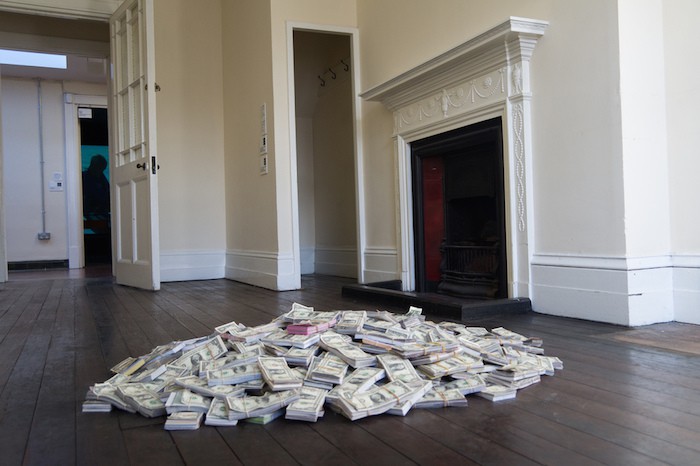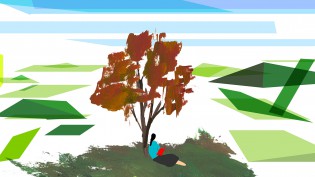
Scratch Magazine, an online publication about the relationship between writers and money, isn’t shutting down because it failed to do what its founder, Manjula Martin, wanted it to do.
Scratch turned a small profit in 2014. About 1,000 people paid to read its stories. But that wasn’t enough, Martin wrote in her editor’s note in the final issue (which, full disclosure, I also wrote an article for), “to pay its editors, fund reported journalism, explore new platforms and services, or hire more help.” She went on:
So the answer to the question of whether a small, independent, ad-free online publication can make enough money from subscriptions to grow and stay good and allow its editors to get enough sleep and keep making their own work is…well, maybe, I guess, but…not really? Put another way:
¯\_(ツ)_/¯.
I asked her to elaborate on the ¯\_(ツ)_/¯. Here’s our conversation, lightly edited.
At the time, I was a full-time freelance writer doing a mix of consulting and journalism. Before I was a freelancer, I worked in nonprofit communications. Before that, I worked at a magazine. Before that, bookstores and record stores!
So it was mostly me developing previous relationships I had with writers, or me reading a lot and paying attention to issues and then emailing people and saying “Hey, I like your work and I know you have recently been dealing with X in your career; would you like to write something about it for Scratch?”
It’s very time consuming but very rewarding to work in this way; I think commissioning pieces helped me develop and maintain the quality and continuity of the magazine in a very intentional and directed way, which is especially important when a publication is first establishing its vision and voice.
And running my own magazine has helped me become better at pitching. I still hate it, but I’m better at it.
But you know, lately I have also been thinking a lot about the relationship between a publication’s editorial mission and its revenue model. There’s this perception that in order to be considered successful, a publication that’s on the Internet must “monetize” or “scale.” But not everything fits into a capitalist profit model; I’d count both journalism and creative writing as forms of media-making that mostly don’t. Obviously for writers, that becomes a problem when it becomes hard to make a living or difficult for people without economic privilege to access the profession — Scratch existed because writers (and publishers) are trying to solve that problem.
 Little magazines gone digital: How the late-adapting literary press has made its way in the web agen+1: Learning that print and digital can peacefully coexistJacobin: A Marxist rag run on a lot of petty-bourgeois hustleThe Baffler: The anti-innovation magazine embraces digitalThe New Inquiry: Not another New York literary magazineA conversation with David Rose, little magazine veteran and publisher of Lapham’s QuarterlyMcSweeney’s Meets Internet: A little publisher survives holding tight to its eclectic, literary roots
Little magazines gone digital: How the late-adapting literary press has made its way in the web agen+1: Learning that print and digital can peacefully coexistJacobin: A Marxist rag run on a lot of petty-bourgeois hustleThe Baffler: The anti-innovation magazine embraces digitalThe New Inquiry: Not another New York literary magazineA conversation with David Rose, little magazine veteran and publisher of Lapham’s QuarterlyMcSweeney’s Meets Internet: A little publisher survives holding tight to its eclectic, literary rootsBut I think Scratch’s strength and effectiveness was that it had aspects of both those types of publications — big ideas and practical information. Rabblerousing and pragmatism. And that was the magazine I wanted to publish. And it was a success. It started a discussion and distributed information and formalized ongoing conversations about compensation and creative work. But in part because it toed that line between servicey and intellectual, it just didn’t make very much money.
Not everything can or should monetize. Not everything will scale. And that’s okay. With the huge caveat that it’s only okay if you’re not exploiting the people working on the project, including yourself!
To answer your question a bit less philosophically, though…I will never again have a website that requires users to sign in before they read free content. There are paywall functionality reasons Scratch had to do that, but honestly it’s just annoying.
On the one hand, I want people to read and remember and utilize the info in Scratch forever; on the other hand, closing is closing. People talk a lot about the Internet being forever, but great things disappear from the Internet all the time. And when a print mag stops publishing, it doesn’t distribute free back issues, either.
What is certain at this point is that the existing platform and subscriber sign-in system will cease when Scratch closes. That’s a platform built by 29th Street Publishing that Scratch pays for, and if I’m not publishing issues, it doesn’t make sense to maintain it. Who Pays Writers, which is hosted on Scratch’s site right now, will continue to exist for the time being. That’s a free service that will remain free as long as I have the resources to keep doing it. It’ll live at whopayswriters.com now.